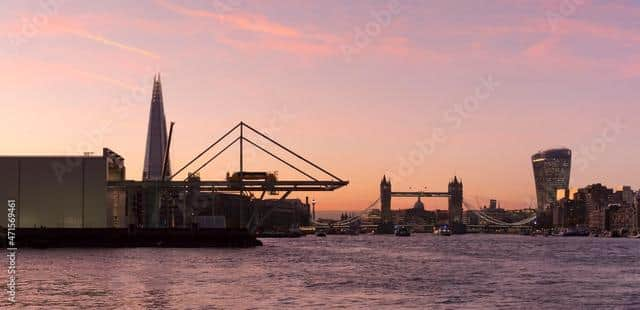Going Green: Our waterways are in a pretty bad way


There have been plenty of headlines in recent months and years about raw sewage being pumped into our waterways, rivers and seas. The sad reality is, they’re in a pretty bad way and efforts to make them better are happening too slowly.
There were 389,000 discharges of raw sewage into UK waterways in 2022, that’s over 2a 1,000 a day on average.
Advertisement
Hide AdAdvertisement
Hide Ad75 percent of UK rivers pose a serious risk to human health, with 62 serious pollution incidents reported by UK sewage and water companies in 2021. Swimmers risk experiencing skin rashes, conjunctivitis or diarrhoea and vomiting. Sewage was dumped into designated bathing water over 5,000 times between 15th May and 30th September 2022 – which is known as the UK bathing season – with water companies incurring more than £4 million in fines from prosecutions.


Only 7 out of 10 of the UK’s bathing beaches are rated as excellent – which means nearly a third need improvements and sadly, no river in England is free from chemical contamination.
Unfortunately, things look unlikely to change quickly. The government is behind on plans to meet the Water Framework Directive requirement for all rivers to reach good status by 2027 and that’s a directive that has been transposed into UK law.
With all these awful statistics and failings, it might come as a shock to hear water companies paid out a total of £965 million in shareholder dividends in the 2021 to 2022 financial year and water company CEOs took home £16.5 million in the same period.
Advertisement
Hide AdAdvertisement
Hide AdThe Environment agency recently released their latest annual Environmental Performance Assessment, five of the nine UK water companies are at two stars out of a potential four and only Severn Trent gets the top marks. Put bluntly, the situation isn’t great.


Yes, the key issue is that we’re routinely having raw sewage pumped into our seas and rivers but the government report on water quality in rivers from 2021 also admitted the UKs sewerage system is outdated and wasn’t built to handle the increasing populations we now have couples with urbanisation and climate change, which brings extreme rainfall events.
This all makes for damage for our waterways, the nature and ecosystems that rely on them and people – like you – who want to enjoy them but there are solutions available. The Thames Tideway Scheme, colloquially known as the Super Sewer is a 25 kilometre combined sewer under construction under the tidal section of the River Thames in London. It’s set to open in 2025, and it’ll drain 34 of the most polluting combined sewer overflows. The tunnel will transfer sewage to treatment works before it’s released into the Thames estuary. It’s estimated it’ll capture and treat up to 39 million tons of untreated sewage that currently flows into the Thames. That’s incredible and holds huge promise for the ecosystems that rely on the Thames.
Now imagine if we could have smaller super sewers built across the UK to clean up all our waters? Our ecosystems would recover and flourish, UK waters would attract more holiday makers and we could all safely enjoy the water that surrounds and runs through our beautiful British countryside and coasts.